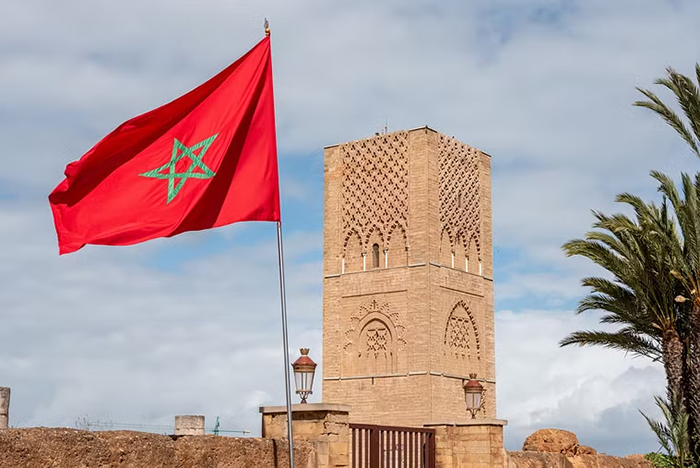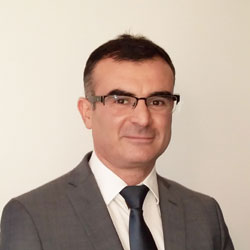Interviews / Observatory of the Maghreb
8 November 2024
Moroccan Foreign Policy: A New Deal in Western Sahara?

French President Emmanuel Macron’s state visit to Morocco took place from 28 to 30 October 2024. This visit sealed a reconciliation between the two countries, estranged for years, and provided an opportunity for the French president to clearly affirm, before the Moroccan parliament, Morocco’s “sovereignty” over the Western Sahara region—an assertion contested by Sahrawi nationalists supported by Algeria.
Does Paris’s support for Rabat on this highly sensitive issue, following similar endorsements from Washington and Madrid, change the regional dynamics? How might Morocco’s relations with Algeria, its rival in the region, be affected? What role does the Western Sahara issue play in Morocco’s relations with Arab and African countries?
Insights from Brahim Oumansour, an associate researcher at IRIS and head of the Maghreb Observatory.
French Foreign Minister Jean-Noël Barrot stated that Emmanuel Macron’s visit aimed to “rebuild” the Franco-Moroccan relationship. How has this relationship evolved in recent years? Where does it stand today?
Emmanuel Macron’s support for Morocco’s 2007 autonomy plan for Western Sahara, under Moroccan sovereignty, marks a pivotal shift in French diplomacy. This move breaks with France’s traditional balancing act between Morocco and Algeria. Algeria, in contrast, supports the Polisario Front and upholds the principle of self-determination as the only resolution to the conflict.
This decision comes after several years of friction between Paris and Rabat, driven by multiple factors. Firstly, France had long turned its focus away from the Maghreb, favouring partnerships with Gulf states and other allies. Secondly, several incidents and scandals had severely strained Franco-Moroccan relations: the 2015 summoning of Morocco’s counterintelligence chief, Abdellatif Hammouchi, by a French judge over allegations of torture; the 2021 revelations accusing Morocco of using Israeli spyware Pegasus to spy on French political and media figures; and France’s 50% reduction in visa issuance for Moroccan and Algerian nationals, intended to pressure consulates into issuing more repatriation passes. This last move caused significant resentment among Moroccan leaders, cooling bilateral relations amid Rabat’s ongoing push for recognition of its sovereignty over Western Sahara.
Signs of rapprochement emerged in 2023, with the share of French arms imports by Morocco rising from 9% to 14%, paving the way for Stéphane Séjourné’s visit as Foreign Minister in February. Today, ties between the two nations are markedly improved, following France’s policy shift on Western Sahara. This newfound alignment has led to the signing of several investment agreements and contracts worth €10 billion, notably in transportation, renewable energy, and energy transition projects—such as the second high-speed rail line between Tangier and Marrakech. During his visit to Rabat, Macron not only reaffirmed France’s recognition of Morocco’s sovereignty over Western Sahara but also pledged diplomatic support at the United Nations (UN).
A new chapter appears to be opening in Franco-Moroccan relations, though challenges remain. Algeria is likely to intensify its pressure on Paris, with diplomatic ties already reduced to minimal levels; Algeria’s ambassador to Paris has been replaced by a chargé d’affaires. Economically and geopolitically, France faces competition from powerful players such as Israel, the United States, and China, all of whom maintain strong ties with Morocco. Lastly, the unilateral recognition of Morocco’s sovereignty over Western Sahara conflicts with international law. The Court of Justice of the European Union recently invalidated Morocco-EU trade agreements involving the disputed territory, which the UN classifies as non-self-governing. Any commercial or investment activity involving Western Sahara risks being deemed illegal under international law.
Morocco has recently strengthened its ties with Israel, Spain, and now France. What impact might these closer relationships have on its regional rivalry with Algeria?
Algeria and Morocco have maintained strained and difficult relations, particularly since 1975, due to the Western Sahara dispute. Contrary to Morocco’s claim of sovereignty, Algeria supports the right to self-determination and backs the Polisario Front, within the context of a broader struggle for regional leadership. Tensions between Algiers and Rabat have escalated since December 2020, when Donald Trump recognised Moroccan sovereignty over the territory in exchange for Morocco normalising relations with Israel as part of the Abraham Accords.
A series of events has further heightened tensions between the two neighbours. These include the Moroccan representative to the UN expressing support for what he described as “the right to self-determination for the Kabyle people” and the Pegasus spyware scandal. In August 2021, Algeria decided to sever diplomatic ties with Morocco and close its airspace to Moroccan planes, while land borders between the two countries have remained closed since 1994.
The actions of Spanish Prime Minister Pedro Sánchez in 2022 and French President Emmanuel Macron in 2024 have added to Algeria’s frustration, compounding its already complex relationship with Rabat. Algeria views the rapprochement between Morocco and Israel as a turning point in regional dynamics, given its hostility towards Israel. Notably, Algeria does not recognise the State of Israel, citing its steadfast support for the Palestinian cause. Algerian leaders perceive the presence of Israel at their borders—resulting from Morocco’s strategic and security alliance with Tel Aviv—as a direct threat to their internal security, particularly in a region already marked by significant instability.
Algeria’s reaction to the policy shifts by Spain and France on Western Sahara can also be attributed to its perception that these moves signify alignment with a broader alliance through which Morocco seeks to isolate Algeria regionally and across the African continent.
The recognition of Morocco’s sovereignty over Western Sahara is gaining ground internationally, but what actual control does Morocco exercise over the region? How does this situation influence Morocco’s African and Arab diplomacy?
Le Maroc a réalisé ces dix dernières années un succès diplomatique en ayant convaincu plusieurs États arabes, africains et occidentaux à reconnaître officiellement sa souveraineté sur le Sahara occidental. Rabat a développé un soft power très actif et a su profiter du repli diplomatique algérien causé par les crises politiques internes pour renforcer son poids au niveau régional.
La libéralisation de secteurs clés de l’économie marocaine a attiré des investisseurs étrangers et permis le développement d’une industrie productive qui séduit les partenaires européens, arabes, américains et même la Chine et la Russie qui entretiennent pourtant de bonnes relations avec l’Algérie. La politique africaine de Mohamed VI accompagnée par le développement d’une coopération économique poussée, principalement dans les services, a renforcé ses liens avec le continent africain et au sein de l’Union africaine depuis sa réintégration en 2017. Tout cela se conjugue avec la stabilité de la monarchie par laquelle Rabat tente de se positionner comme partenaire fiable tant au niveau local que régional.
Notons également que la normalisation avec Israël fait gagner au Maroc des soutiens de taille qui renforcent son positionnement au niveau régional sur le plan diplomatique et économique.
Concernant le Sahara occidental, bien qu’il ait toujours été central dans la politique étrangère du Maroc, la reconnaissance des États-Unis de la souveraineté marocaine sur ce territoire, précédé par celle des Émirats arabes unis, du Bahreïn et certains pays africains, avait radicalisé la diplomatie marocaine sur ce dossier. Le revirement de la position espagnole, puis française, va durcir encore plus la position marocaine vis-à-vis d’autres partenaires européens, africains et arabes.
Les États membres de la Ligue arabe restent profondément partagés entre ceux favorables à la souveraineté marocaine, ceux qui soutiennent la position algérienne sur le droit des Sahraouis à l’autodétermination, et des pays qui préfèrent la neutralité. L’Union africaine, où l’Algérie et l’Afrique du Sud exercent une influence considérable, reste majoritairement favorable à la cause sahraouie et reconnaît la République arabe sahraouie. Beaucoup de pays africains soutiennent la solution onusienne du conflit par la voie du référendum sur l’autodétermination. Rabat pourrait gagner plus de terrain sur le continent africain, notamment si Donald Trump, qui revient à la Maison-Blanche, décide d’exercer plus de pression sur des pays pour aller dans le sens de la position marocaine.
Toutefois, la situation risque de rester toujours bloquée au sein des Nations unies qui maintiennent le statut de « non-autonomie » du territoire. Malgré leur neutralité sur le dossier, la Chine et la Russie pourraient bloquer des tentatives américaines visant à faire adopter des résolutions au Conseil de sécurité de l’ONU en faveur de la reconnaissance de la marocanité du Sahara occidental.

